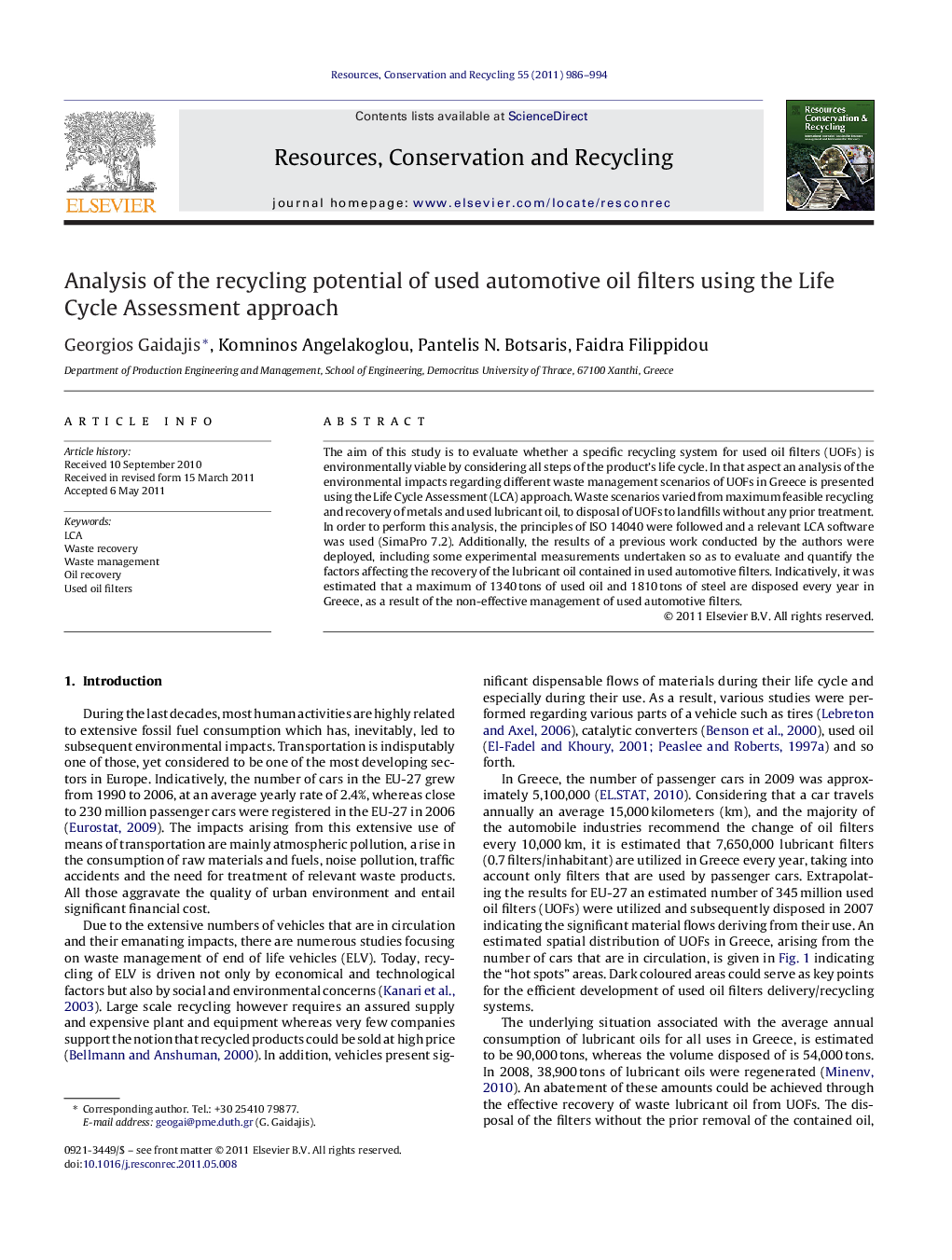| Article ID | Journal | Published Year | Pages | File Type |
|---|---|---|---|---|
| 1063453 | Resources, Conservation and Recycling | 2011 | 9 Pages |
The aim of this study is to evaluate whether a specific recycling system for used oil filters (UOFs) is environmentally viable by considering all steps of the product's life cycle. In that aspect an analysis of the environmental impacts regarding different waste management scenarios of UOFs in Greece is presented using the Life Cycle Assessment (LCA) approach. Waste scenarios varied from maximum feasible recycling and recovery of metals and used lubricant oil, to disposal of UOFs to landfills without any prior treatment. In order to perform this analysis, the principles of ISO 14040 were followed and a relevant LCA software was used (SimaPro 7.2). Additionally, the results of a previous work conducted by the authors were deployed, including some experimental measurements undertaken so as to evaluate and quantify the factors affecting the recovery of the lubricant oil contained in used automotive filters. Indicatively, it was estimated that a maximum of 1340 tons of used oil and 1810 tons of steel are disposed every year in Greece, as a result of the non-effective management of used automotive filters.
► Three waste management scenarios regarding used oil filters are analysed. ► The Life Cycle Assessment approach is applied. ► A maximum of 1340 tons of used oil is estimated to be disposed annually in Greece. ► Simple practices could save up to 736 tons of lubricant oil annually in Greece. ► Results indicate that recycling is preferable for each impact assessment method.
